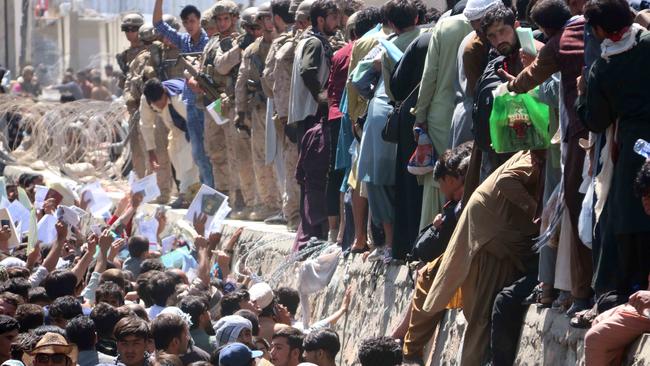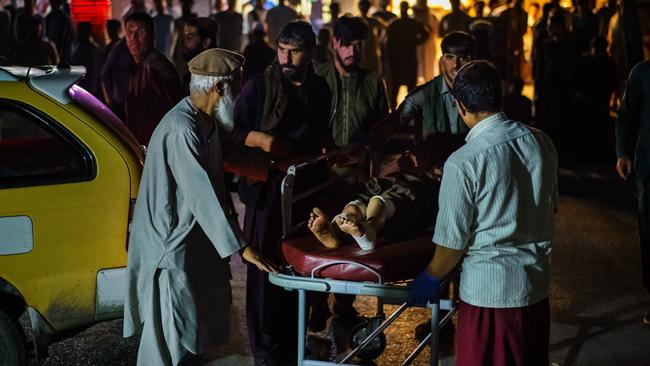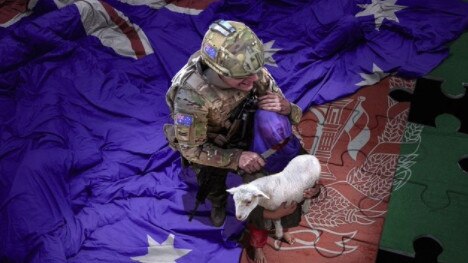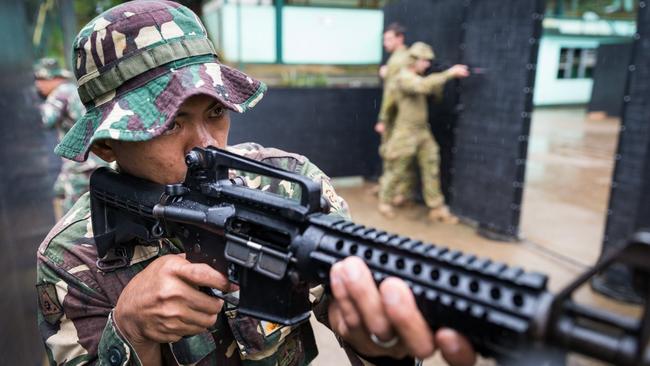International Criminal Court shelves investigation into alleged war crimes by Australian troops
Australian Special Forces troops accused of Afghanistan war crimes have been handed a surprise reprieve.
National
Don't miss out on the headlines from National. Followed categories will be added to My News.
Australian Special Forces troops accused of Afghanistan war crimes have been handed a reprieve with the International Criminal Court (ICC) indefinitely shelving an investigation into their alleged atrocities.
As venerated former soldier Ben Roberts-Smith awaits the Federal Court in his defamation proceedings to decide whether there was truth in Nine’s allegations he was involved in unlawful killings, the International Criminal Court has confirmed there was no prospect of a “genuine and effective” investigation into broader claims against Aussie troops.
The decision follows last year’s Taliban Afghanistan takeover with the ICC declaring with its limited resources its attention was instead now focused on investigating alleged crimes committed by the Taliban and the Islamic State Khorasan Province (ISKP).

Allegations against other parties had now been formally “de-prioritised” but with no statute of limitations could be revived if and when circumstances allowed.
According to the ICC the gravity of allegations against the Taliban and the ISKP were severe and included “indiscriminate attacks on civilians, targeted extrajudicial executions, persecution of women and girls, crimes against children and other crimes affecting the civilian population at large”.
The ICC would not go into detail on where it had got to probing claims against Australians.
“Confidentiality is a crucial aspect of our activities therefore the Office of the Prosecutor does not publicly discuss specifics related to its activities,” a spokesman told News Corp Australia.

The Inspector General of the ADF’s Brereton inquiry into allegations of war crimes by Australian Special Forces, mostly from the SAS, uncovered evidence of 39 murders against civilians and prisoners by up to 19 Australian troops.
The Office of the Special Investigator gathering evidence to a level to potentially bring matters to Australian courts has also struggled with its probe post the former enemy during the decades-long Afghanistan war now running the country. It has also discovered one key “witness” to alleged war crimes was confirmed to have since been killed, ironically as an enemy combatant and suspected al-Qaida affiliate.
But the fallout from the 2020 Brereton findings have been wide ranging, not just to those implicated, but to broader ADF operations.

An activist Muslim group from the separatist Filipino Mindanao region is agitating about the presence of Australian troops currently in the Philippines.
The basis of its claim, which it had formally presented to the ICC, had been that if ADF Special Forces killed civilians in Afghanistan they could do the same in the Philippines, where the ADF has had troops in Zamboanga in Mindanao’s west, including urban warfare and military intelligence specialists.

The deployment has been post the 2017 Marawi conflict where ISIS affiliates including some fleeing war in the Middle East sought to create a new caliphate.
The Kilusang Pagbabago in the Bangsamoro Autonomous Region in Muslim Mindanao activist group appealed to the ICC to bring those identified in the Brereton report to account in a bid to oust ADF troops generally from their region.
The ADF confirmed it “routinely had personnel based in the Philippines for military exercises and to provide training across a range of military disciplines” as part of a longstanding commitment to counter regional terrorism threats.
More Coverage
Originally published as International Criminal Court shelves investigation into alleged war crimes by Australian troops




